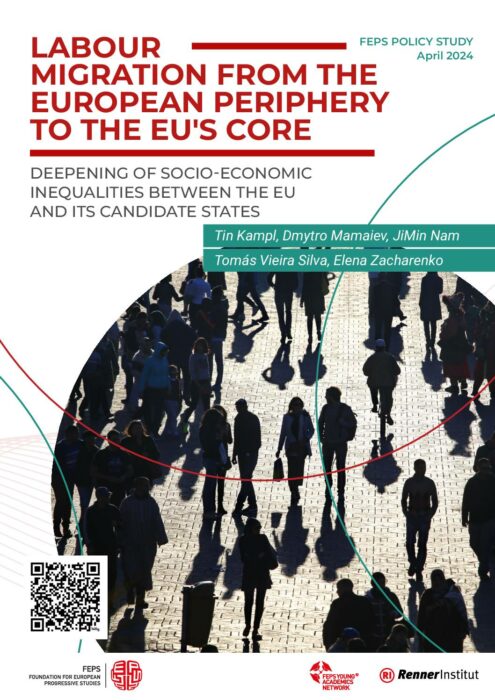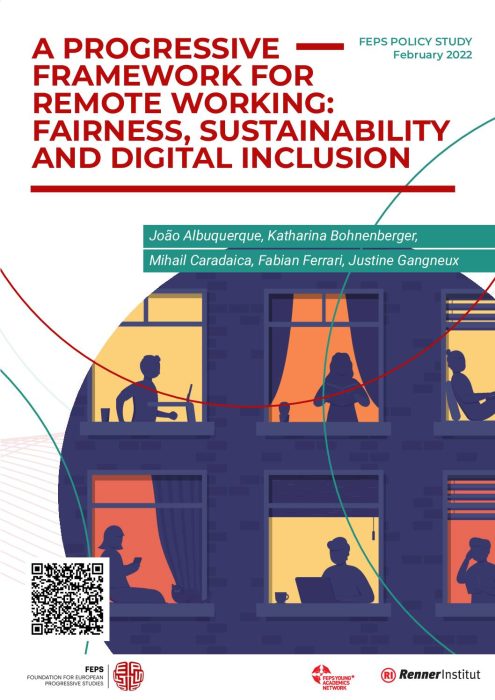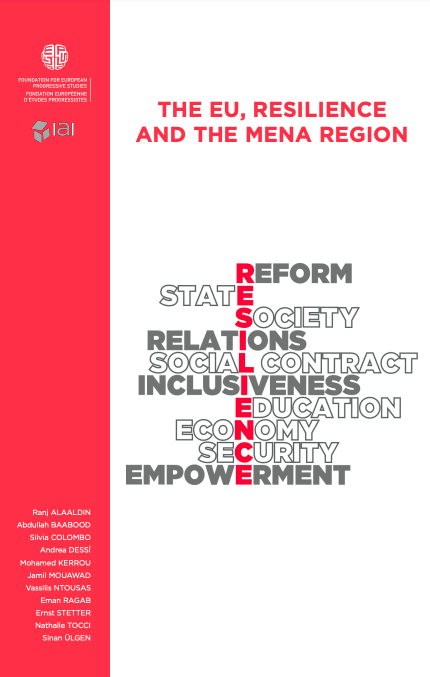An Accredited Parliamentary Assistant to an MEP.
Tomás is originally from Portugal but has lived all across Europe. He holds a Bachelor's degree in Philosophy and Politics from the University of York and a Master's degree in Political Science from the University of Amsterdam, specializing in Political Theory and writing a thesis on migration. Having been involved in party politics on a local, national and European level, he taught at the University of Amsterdam as a Junior Lecturer, before moving to Brussels to work as an Accredited Parliamentary Assistant to a Portuguese MEP, where he focused on External Affairs and Enlargement Policy.
EU enlargement is once again becoming a priority for European decision makers and is seen as an effective foreign policy tool in challenging geopolitical times. However, it is imperative to recognise EU accession as a multifaceted process that can also exacerbate socio-economic disparities within and beyond the EU. This policy study analyses this phenomenon in light of two specific issues: the application of visa liberalisation policies under EU accession negotiations; and the negative effects of high levels of migration from the semi-periphery to the core of the EU induced by access to free movement.
Political Mentor: Evin Incir, S&D MEP
Academic Mentor: Lisa Marie Borrelli, Associate Professor UAS
PhD student at the Lithuanian Centre for Social Sciences at the Department of Social Change
Doctoral researcher at the Faculty of Social Sciences of Tampere University, Finland.
MA in Social Anthropology from the University of Oslo, Norway.
An Accredited Parliamentary Assistant to an MEP.



Through its eclectic 20 principles, the European Pillar of Social Rights is an opportunity to break silos and look at social development as the network of challenges that it truly is.
Departing from the rather long history of European social rights, the implementation of the EPSR must follow a holistic approach, identifying synergies with discussions it already hints at in its 20 principles.
In order to contribute to the identification of such synergies, this paper attempts to shed light on three transversal issues that national governments and the European Commission must bear in mind when implementing the EPSR: civil rights; labour relations; and gender equality. The analysis departs from the setting of the current model of welfare state in post-World War II Europe and it ends with the Porto Summit 2021, reflecting on the documents approved and what they can mean for a post-COVID-19 Social Europe.
Read the Paper:
Three ideas for a stronger Social Europe in a post- Covid 19 recovery
Political Mentor: YES Vice President and S&D MEP Alicia Homs
Academic Mentor: Matjaz Nahtigal, Associate professor at the Faculty of Social Sciences, University of Ljubljana